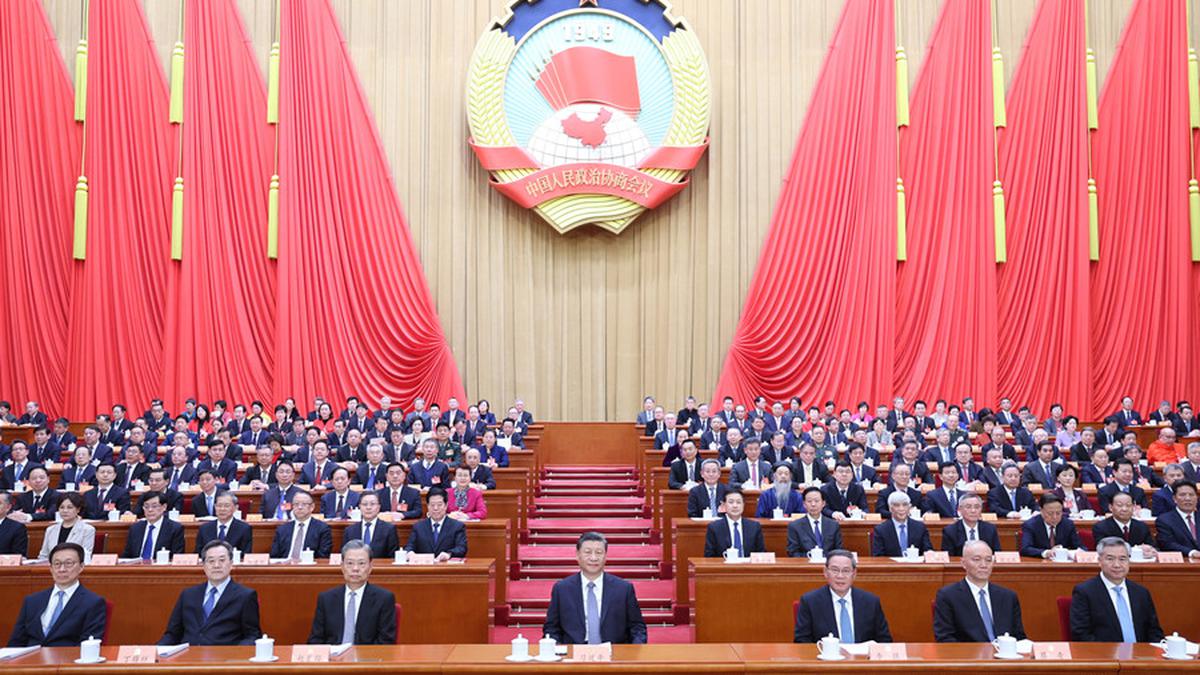
China’s Two Sessions and the priorities at this year’s event | Explained Premium
The Hindu
Beijing’s annual ‘Two sessions’ event saw the Parliament set China’s priorities – economy, technology and cutting down the State Council’s role in Xi Jinping’s government.
The story so far: China held its annual parliamentary meetings known as ‘Two Sessions’ last week from March 4 to 11 to vote on legislations pre-approved by its ruling party, the Communist Party of China (CPC). The ‘Two Sessions’ event, which lasted for a week and comprised Beijing’s top political advisory body Chinese People’s Political Consultative Conference and its unicameral legislature the National People’s Congress (NPC), saw Beijing set the CPC’s agenda for the next year – a push for technology innovation, 5% economic growth and concentrating more power into Xi Jinping’s hands.
While the passage of the laws is a given in the nation’s single-party system, the ‘Two Sessions’ event offers a rare view of China’s top leadership, particularly the Chinese Premier – the CPC’s second-in-command – via his press conference at the end of the session. However, this annual event has been scrapped in the latest edition. This year, the NPC also amended the State Council Organic Law, directing the State Council to ‘faithfully implement the CPC’s directives’.
Hit with an economic crisis and loss of investment, China has set an ambitious 5% growth target for next year but did not announce any major policy changes to reach this figure. It has also not announced any new appointments to the State Council headed by Chinese Premier Li Qiang, leaving the posts of Foreign Minister and Defence Minister vacant since last year.
Here’s a look at the ‘Two Sessions’ event and key outcomes this year
Lianghui or ‘Two Sessions’ is the collective term used for the annual event held by the Chinese Parliament, called the National People’s Congress (NPC), and the Chinese People’s Political Consultative Conference (CPPCC). As per the NPC Observer, the NPC, China’s topmost legislative body, with 2977 delegates elected for a five year term, meets only once every year in early March. This was the second session of the 14th NPC and 14th CPPCC – kicking off on March 5 and 4 respectively.
14th National People’s Congress
In its session, the NPC deliberates on the government’s work report, reviews Central and local budgets, debates and passes laws pre-approved by the CCP, deliberates on annual work reports of the NPC Standing Committee (NPCSC) — the permanent standing committee of the NPC, Supreme People’s Court (SPC) – China’s apex court, and the Supreme People’s Procuratorate (SPP) – Beijing’s top public prosecutor to investigate and prosecute crimes.













